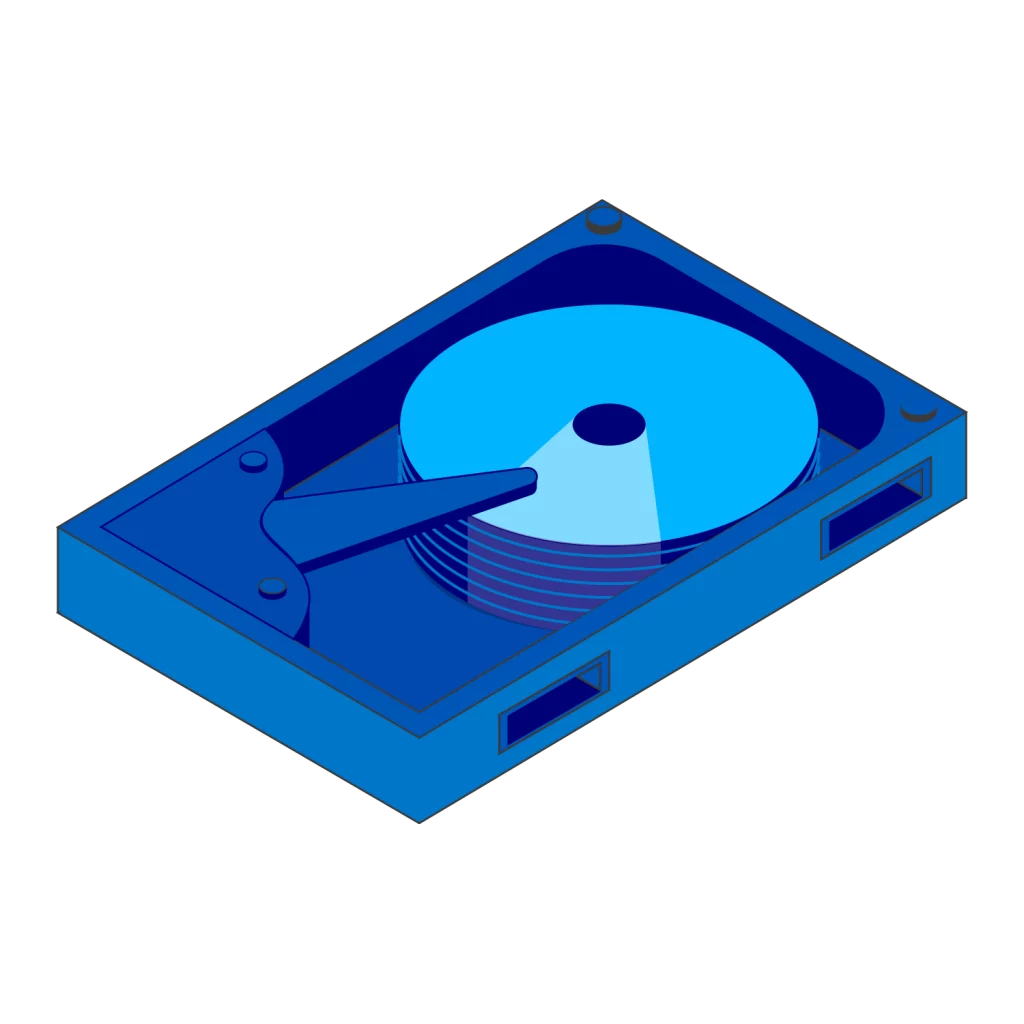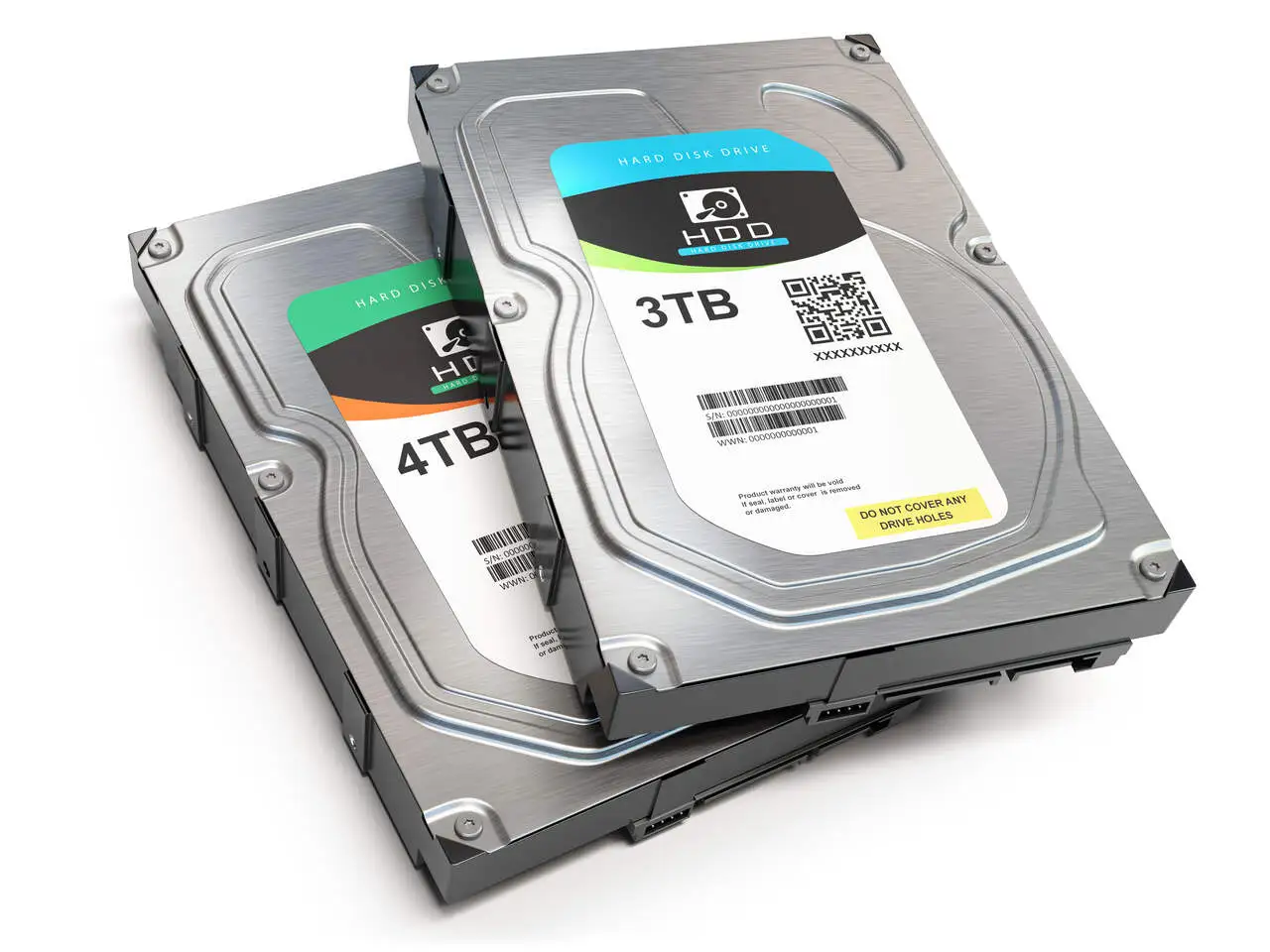
WORLDWIDE SERVICE
RECOVERED DATA CENTERS
EXPERIENCE CONSOLIDATED
24H SUPPORT FOR EMERGENCIES
REMOTE DATA RECOVERY
TOTAL PROTECTION OF YOUR DATA
Recovery of Data Lost by Fire or Flood
Recovering data from a hard drive, RAID, storage or any other storage device after a fire, flood or natural disaster is classified as a special case due to its high complexity.
For the most part, data recovery is possible in both cases. But the way the customer handles the device after the incident can influence whether or not data recovery is possible.
We at Digital Recovery can help you with data recovery. We have the technology and specialists to recover your data.
In the event of a fire or flood, do not open your device, regardless of its condition, and contact us urgently.
In many cases, recovery may be possible, but due to incorrect handling by the client, recovery has been compromised. Therefore, in any of these scenarios, please contact our experts, who will advise you on how to handle the device and how to send it to one of our laboratories.
Why Digital Recovery?
We are one of the few companies in Brazil capable of recovering media that has been damaged by fire or water. We have the necessary technology and trained specialists to carry out data recovery.
We are developers of technologies that enable us to act with precision and agility in the processes of evaluating and recovering our clients’ data. The generation of these technologies makes Digital Recovery unique on several service fronts.
Even if your equipment is in a location where we don’t yet have a laboratory, we have the technology to assess and recover your data remotely. If this is your case, please contact us.
If you need one, we can also provide you with a Non-Disclosure Agreement (NDA) in a language of your choice. Talk to one of our experts.
We are always online
Please fill out the form, or select your preferred contact method. We will contact you to start recovering your files.
Success Cases
What our customers say about us
"We had a serious issue following a NAS server power outage in Raid 5. I immediately contacted DIGITAL RECOVERY. After a few days of hard work the issue was resolved."

"One of our RAID servers had stopped. After several attempts without fixing the problem we found DIGITAL RECOVERY and 5 hours later, at 4:00 am, the data was recovered."

"We referred DIGITAL RECOVERY in a special case (data loss) in a storage RAID 5. Digital Recovery recovered 32 million files and the customer was extremely satisfied."

"Without any doubts the best data recovery company. Digital Recovery contact details will always be saved on my cell phone, as I will inevitably need it again."

"The quality of the service is excellent. The attention given to the service is gratifying and the feedbacks that are given leave us calm, knowing that we can trust in the work and dedication."

Customer since 2017
"Great company, they saved me from a big problem!!! I recommend them, what a quick service, my thanks to the Digital Recovery team for the attention and speed in solving the problem! Awesome!"

"The second time I count on the agility and professionalism of the Digital Recovery team, they are very experienced and agile. I recommend them to everyone"

They helped me recover some data that I had thought was lost. I had a great experience with the team for their calmness, agility, and transparency.










Answers from our experts
What happens to the data in the event of a fire?
Data is stored on equipment that is not designed to be fire-resistant. The data is stored on disks that are usually located inside computers, notebooks, servers and Storages.
Before the fire reaches the storage device directly, the materials surrounding it will, to a certain extent, act as protection. However, depending on the exposure time, temperature and intensity of the fire, the data will be affected.
How to proceed in the event of a fire?
- Remove the media from the computer, notebook, server or storage carefully. If it is difficult to remove the disks, send in all the equipment that was damaged.
- Don’t let anyone who doesn’t specialize in this area open your storage device, as without proper experience they could make the problem worse. Try to carefully ascertain the manufacturer, make and model of the disks that were damaged.
- Make a list of all the data that needs to be recovered.
- Get in touch with us as soon as possible. We’ll tell you how to proceed with sending the media as safely as possible.
What happens to the data in a flood?
In the event of a flood, the device may be lost, but in most cases the data can be recovered. But you need to know how to deal with it.
Every hard disk is hermetically sealed. This means that any impurities contained in the air will not get inside the hard disk, as this could damage it almost instantly. However, they are not made to be resistant to water ingress.
Every hard disk has air filters to calibrate the internal pressure with the external pressure. This means that a hard disk can function normally at a wide range of altitudes.
This filter is very efficient at ensuring the minimum air inlet and outlet for pressure calibration, but it is not completely efficient when the disk is submerged.
Once submerged, there will be pressure for the water to enter. Within a few minutes, this will cause the materials (glue, rubber, labels, perfect fittings, HEPA filters) used to prevent air from entering to lose their original properties and water will enter the inside of the hard disk.
In addition to hard disk storage, there is also flash memory storage, which works with electrical impulses that would be short-circuited by water.
How to proceed in the event of flooding?
- Avoid carrying out procedures to dry out the hard disk.
- Send us the media as soon as possible. Although water has entered the hard drive, it will not come out unless it is opened and subjected to the correct procedures for handling and cleaning the internal components.
- Avoid plugging in the hard disk, even if the disk is completely dry on the outside, its internal components are still wet. Water contains mineral salts and impurities which, when they come into contact with the disk’s internal components, will damage them. The platters of the hard disk have a layer that is resistant to water and mineral salts, but this layer is not resistant to friction. If you plug in the hard disk without first doing a thorough job of removing the mineral salts and impurities contained in the water, not only will the disk not work, but there will be friction between the read heads and the hard disk platters. The particles of mineral salts and impurities in the water can cause enough damage to scratch the platters and prevent data recovery.
- In the case of devices that use flash memory (SSD, memory card, pen drive), do not try to connect them or open them. Just dry it externally and send it to us.
How do you prepare a package to send media that has been submerged?
When preparing the shipping package for a hard disk that has suffered any kind of flooding, wrap the disk in a slightly damp cloth or sponge to slow down the drying process.
Although most of the materials used in a hard drive internally are aluminum or plastic derivatives, the physical state of the platters (where the information is stored) may undergo slight variations caused by the mineral salts and impurities contained in the water.
If these dry out on the platters, they can cause damage, making it difficult or impossible to read the data.
Latest insights from our experts

Data loss, a real and present risk!
Data loss is a critical problem that affects individuals, companies and organizations of all sizes, and can result in devastating consequences, from the loss of

What is a zero-day attack?
A zero-day attack is a type of cyber threat that exploits a software vulnerability unknown to the developers or manufacturers of the software in question.

Best HD brands
When talking about the best hard disk drive (HDD) brands, it’s important to consider various aspects such as reliability, performance, storage capacity and value for
What you need to know
What are some common examples of situations in which a storage device can be damaged by fire and water?
Some common examples of situations in which a storage device can be damaged by fire and water include fires in homes or businesses, floods or damage caused by liquid spills.
How can I protect my data from loss due to fire and water?
To protect your data against loss caused by fire and water, it is recommended to back it up regularly in a safe and secure location. In addition, it is important to invest in water- and fire-resistant external storage to protect your data.



